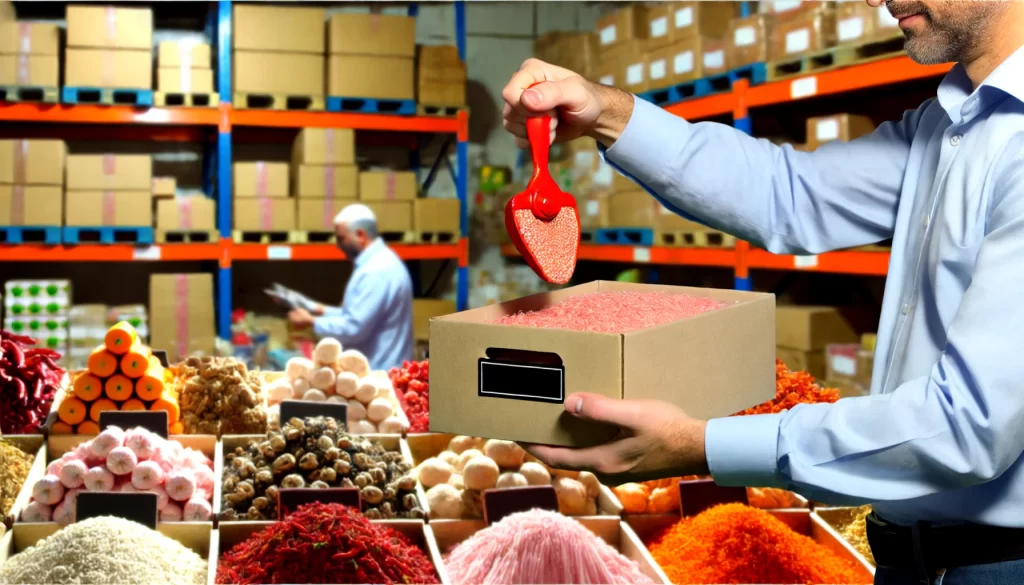A food wholesaler purchases a different kind of product, stepping away from the norm and embracing innovation in a rapidly changing market. This bold move highlights a shift in strategy driven by the evolving demands of consumers who seek unique and sustainable options. This article explores the reasons behind such a decision, the challenges it entails, and its potential impact on the food industry.
Understanding the Traditional Role of a Food Wholesaler

Meeting Consistent Consumer Demand
Traditionally, a food wholesaler has supplied retailers, restaurants, and other businesses with essential products. These items are usually staples such as grains, dairy, and meat, with a steady and predictable demand. A food wholesaler purchases different products to ensure that stores and food establishments are well-stocked, providing consumers with the items they rely on daily.
The Efficiency of Established Systems
The traditional model focuses on efficiency and reliability. Wholesalers build long-term relationships with suppliers and retailers, creating a seamless supply chain that minimizes disruption. This system has served the industry well for decades, ensuring consumers always find what they need on the shelves.
The Necessity of Change in the Food Industry

Shifting Consumer Preferences
In recent years, consumer preferences have begun to shift. Today, people are more conscious of their food, paying attention to sustainability, ethical sourcing, and health benefits. As a result, a food wholesaler must adapt to these changing demands to remain competitive. Wholesalers can meet these new expectations and tap into emerging markets by purchasing a different product.
The Rise of Specialty and Niche Products
The demand for specialty and niche products has grown significantly. Organic produce, plant-based proteins, and ethically sourced goods are becoming more popular. A food wholesaler who purchases these types of products is responding to current trends and positioning themselves as a leader in the industry, capable of offering what consumers want.
The Unusual Purchase: What Sets It Apart?
Introducing Unique and Rare Products
When a food wholesaler purchases a different product, it often stands out because it is unique or rare. This could be an exotic spice, a new plant-based food, or a specialty item that caters to specific dietary needs. These products are not part of the typical inventory but offer something new and exciting for consumers.
Filling a Market Gap
These unusual purchases are often made to fill a gap in the market. Consumers are always looking for the next big thing, and wholesalers who can anticipate these needs will be ahead of the curve. By offering products that are not widely available, wholesalers can attract a new customer base and differentiate themselves from competitors.
The Impact of a Bold Move on the Market

Influencing Retail Offerings
When a food wholesaler purchases a different product, it can influence retailers’ stock. Retailers want to offer products that will attract customers, and if a wholesaler introduces something new and in demand, retailers will likely follow suit. This can lead to broader availability of the product and increased consumer interest.
Shaping Consumer Behavior
Wholesalers play a crucial role in shaping consumer behavior. By offering unique products, they introduce consumers to new foods and trends. Over time, these products can move from niche items to mainstream staples, changing the landscape of the food industry.
Challenges of Introducing a Different Product
Navigating Supply Chain Complexities
One of the main challenges of introducing a different product is navigating the complexities of the supply chain. These products may not have established supply lines, making sourcing more complex and potentially expensive. Wholesalers must build new relationships with suppliers and ensure a steady supply to meet demand.
Overcoming Market Resistance
There is also the risk that consumers or retailers may not receive the new product well. If the product is too unfamiliar or does not meet expectations, it could struggle to gain traction in the market. Wholesalers must be prepared to invest in marketing and education to help consumers understand the value of the new product.
Strategies for Success: Making the Unusual Purchase Work
Conducting Thorough Market Research
A food wholesaler must conduct thorough market research to make a different product successful. Understanding consumer needs and preferences is essential to selecting the right product. This research can help identify gaps in the market and predict which products will likely succeed.
Building Strong Supplier Relationships
Strong relationships with reliable suppliers are crucial when introducing a new product. Wholesalers must ensure the product is high quality and can be supplied consistently. Building supplier trust can also lead to better pricing and more favorable terms.
Also Read: In-N-Out Menu with Prices: Uncover Delicious Deals
Marketing the Unusual Purchase
Educating Retailers and Consumers
Marketing plays a vital role in the success of a new product. Retailers need to be educated on its benefits so they can effectively promote it to consumers. Wholesalers should provide information on how the product can be used, its health benefits, and why it stands out from more common options.
Creating a Compelling Narrative
A compelling narrative can help a product gain traction in the market. Wholesalers can highlight the story behind the product, such as its origins, the sustainable practices used in its production, or its unique health benefits. By telling this story, wholesalers can create an emotional connection with consumers, making them more likely to try and continue purchasing the product.
When a food wholesaler purchases a different product, it represents more than just a change in inventory; it’s a bold step toward innovation and adaptability. This decision reflects a deep understanding of the market and a willingness to meet consumers’ evolving needs. By carefully selecting, sourcing, and marketing these unique products, wholesalers can differentiate themselves in a competitive industry and shape the food’s future.
As the food industry evolves, those who embrace change and take calculated risks will thrive. A food wholesaler who purchases a different product today sets the stage for future success and helps to define what’s next in the food world.

